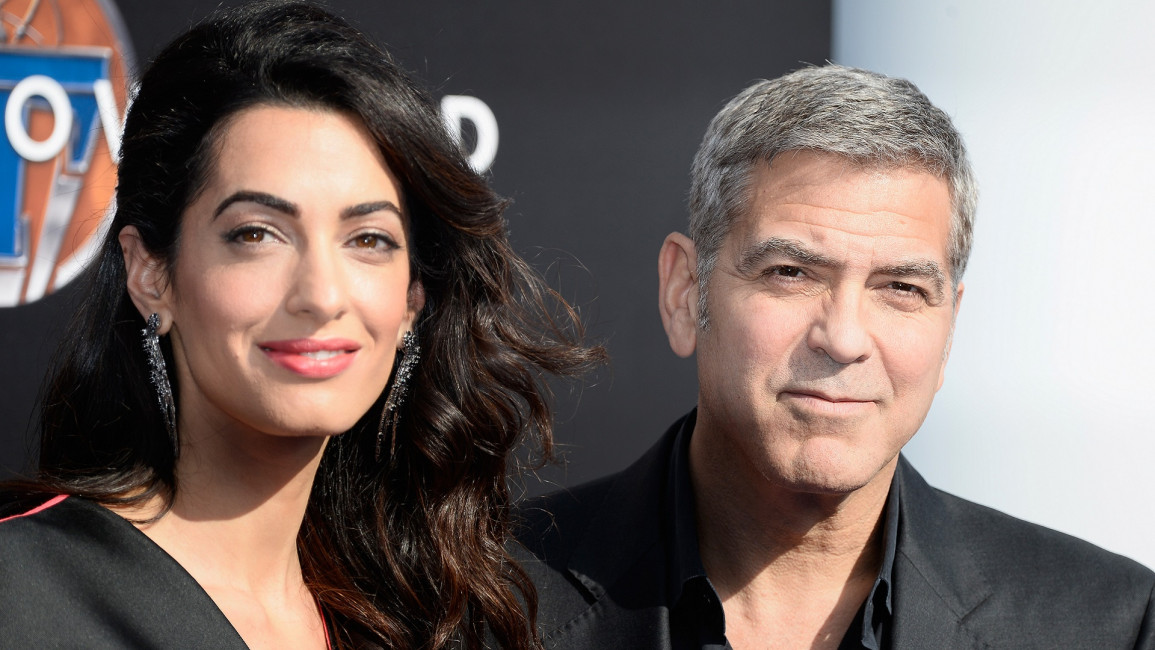
Clooney ignores Gulf human rights abuses, lectures Sudan instead
Clooney ignores Gulf human rights abuses, lectures Sudan instead
Blog: Amal Alamuddin Clooney addressed an audience in the UAE, urging governments of the region to do more to curb rights abuses, but failed to offer more than polite criticism.
2 min read
Some have criticised Alamuddin (L) for avoiding controversial cases since marrying the Hollywood actor [Getty]
Celebrity human rights advocate and international lawyer Amal Alamuddin Clooney spoke at a conference in the UAE on Sunday, singling out by name Sudan, Iran and North Korea for their human rights abuses.
However, Clooney made no specific mention of the Orwellian surveillance laws in place right here in the Gulf or the war crimes Gulf states may be committing in Yemen.
Instead, she made vague digs at the UAE, which she praised for its innovation and for having "the happiest citizens", saying tweets should be met with tweets, not prison terms.
Clooney told her audience at the opening of a government communications summit that governments around the world should be consistent, principled and transparent about human rights.
However, Clooney made no specific mention of the Orwellian surveillance laws in place right here in the Gulf or the war crimes Gulf states may be committing in Yemen.
Instead, she made vague digs at the UAE, which she praised for its innovation and for having "the happiest citizens", saying tweets should be met with tweets, not prison terms.
Clooney told her audience at the opening of a government communications summit that governments around the world should be consistent, principled and transparent about human rights.
She said Arab countries were facing "an unprecedented human rights crisis". She urged that criticism of ruling systems be met with dialogue, not prison terms, and that protests be met with "crowd control", not bullets.
 |
My advice to you is not only to be vocal and consistent, but also to be principled in communications about human rights |  |
"My advice to you is not only to be vocal and consistent, but also to be principled in communications about human rights. The fourth suggestion I have is to be quick," she said. "Governments must be prepared to be transparent and get their message out first."
Although she has handled several challenging cases, including representing imprisoned al-Jazeera journalists in Egypt and seeking recognition of the Armenian genocide, she has been criticised since marrying the actor for avoiding "unsafe" cases that could embarass her husband.
In August 2014, she turned down a UN offer to take part in investigating Israeli war crimes in Gaza, saying she was "too busy".




